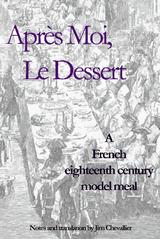THE OLD REGIME POLICE BLOTTER: Suicides
The fact that an officially Catholic country found it necessary to pass laws against suicide speaks volumes about the gulf between an imposed, professed religion and the reality of individual conscience. Grimm in fact claimed that "suicide, ... has come singularly into fashion since some time"
(Correspondance Litteraire T. 10 August 1772 (38)). Whatever suicide's legal status, in the numerous accounts from our period, its tragic aspects are generally foremost.
--PRISON SUICIDES
These two cases - apparently originally judged on the same day - are given as examples by Denisart in his article on "Suicide" and show the harsh face of the law, both in regards to the act itself and to the prisoners' expectations of imprisonment.
Denisart says, by the way, that "only those who killed themselves while in full possession of their faculties are punished; no sentence is pronounced
against those who are demented, or subject to mental aberrations."
Sentence handed down December 2, 1737, regarding the conflict which arose between the Bailiwick and the Provost of Orleans, regarding which of these two Tribunals would try the case against the corpse and in memory of Louis Martin (arrested for theft, by the Marshalsey of Orleans), who hung himself in his cell with a rope made from the straw of his bed.
....
It has since been ordered by Sentence delivered in the form of Statute, January 31, 1749 (on appeal a minima of a Sentence by the Criminal Lieutenant of
Chaumont en Bassigny, against the corpse of Hubert Porrier, who murdered and strangled himself in his cell) that the Sentence delivered on December 2,
1737, should be sent to the Bailiwick of Chaumont and to other Bailiwicks within the Court's jurisdiction, to be read and published there, etc.
Denisart, Decisions Nouvelles (III, 159)
--THE RUINED FATHER-IN-LAW
A cascade of misfortune...
March 1758 - M. Herbert put out, a few years ago, a very useful work on
"The General Policy of Grain". This man, about fifty-five years old, was in
charge of the public carriages of Bordeaux; he was the father of two girls whom
he had married off. One of this sons-in-law, who was employed in the
provinces, having come to see him, was robbed during this time by an agent he had
left in charge of his affairs. M. Herbert assumed his son-in-law's obligations;
this mishap absolutely upset his fortunes and put his affairs in the greatest
disorder. He could not bear the weight of this misfortune; he killed himself
in recent days. Having missed with a first pistol shot, which hit his
shoulder, he had the strength to fire a second of which he died.
Grimm, Tome 3, 1759 (482)
--A BAD NOVELIST ESCAPES THE GALLEYS
Speaking ill of the dead did not seem to concern Grimm - at least when it came to bad writers.
May 1761 - It was discovered that the jansenists had given or promised money to a certain M. de la Salle, who once produced bad novels, of which the most known was called "Verserand", to fabricate a sentence by the State council condemning the Society [that is, the Jesuits]. As a result of this discovery, M. de la Solle was condemned to the galleys; but, having been informed of the fate wich awaited him, he opened his veins and avoided his punishment by a voluntary death.
Grimm, Tome 4 1761 (411)
--HIS DEATH RATHER THAN HER DISHONOR
There are distant hints of Stendhal in this brief tale.
May 1784 - The Abbe Rousseau was a poor young man reduced to running from morning to evening through every part of the city to give lessons of history and geography. In love with one of his pupils like Abelard with Heloise, like Saint-Preux of Julie; less happy no doubt, but probably near to being so; with as much passion, but a more honest soul, finer and above all braver, he seems to have sacrificed himself to the object of his passion. Here is what he wrote before breaking his head [sic] with a pistol shot after dining at a restaurant in the Palais-Royal, without showing any mark of worry or disturbance; it is from the police report prepared on site by the commissioner and police officers who copied this note remarkable enough to be preserved: 'The inconceivable contrast that is found between the nobility of my feelings and my low birth, a love as violent as it is irresistible for an adorable girl; the fear of causing her dishonor; the necessity of choosing between crime and death, all this had led me to abandon Life. I was born to virtue, I was about to become a criminal; I preferred to die.'
Grimm, Correspondance Litteraire, Tome 13 1784 (529-530)
--A DEPRESSED COUNCILLOR AND A DEVOTED COURTESAN
Layers of intrigue seem to underly the case of Pierre Chabrit - is the key in Murville's 'very blonde blonde wife? Despite his public service, it is
Pauline's death that seems the more Roman of the two.
August 1784 - Among the suicides committed this year in Paris, none has inspired as much regret as that of M. Pierre Chabrit, councillor on the sovereign council of Bouillon and lawyer to the parlement of Paris. He was no older than thirty, and had already made himself known in a most respectable manner with a work called 'Of the French monarchy, or of its laws', a work somewhat unevenly written,... but in which is found useful and learned research on the antiquities of our legislation. Last year the Academy francaise had awarded him the prize founded by M. de Valbelle; he had dared to count again this year on the same resource. Thanks to the intrigues or efforts of M. de la Harpe, this benefit had been taken from him to be given to Andre de Murville, whose wife, daughter of Mlle. Arnould, is a very blonde blonde, but of a rather piquant appearance and of a sweetness of character worthy of the examples and lessons which informed her youth. The honest M. Chabrit, reduced to six hundred pounds of income, allowed himself to think, in one of those unhappy moments which makes one see things as they are, that in his position it was infinitely preferable to die than to live, and he had recourse to a strong dose of opium; he was found dead in his bed. This unfortunate man was in too much of a hurry; because, on the very morning when he had just ended his course, a friend was going to inform his that he had obtained from the controller general a pension which would have met his needs.
Grimm adds that the "late Diderot" had written to Catherine the Great, recommending - with some hyperbole - Chabrit, but that the letter had apparently
not been received.
A death more generous that that of M. Chabrit is that of a poor courtesan, named Pauline. She loved a young officer whose father had had him locked up, because he was afraid his son would commite the folly of marrying her. She poisoned herself with nitric acid mixed with mercuric chloride, after having written to the father to ask the liberty of his son as the price of the death to which she had committed herself and which would now make his captivity as useless as it was unjust and barbarous.
Grimm then reproduces, not her own note, but a version of it which had appeared "in all the public papers", written by "M. Arnaud, who knew well this
affecting victim of love, quite worthy, without a doubt, of a purer origin and a better fate."
Grimm, Tome 14 1785 (196-197)





